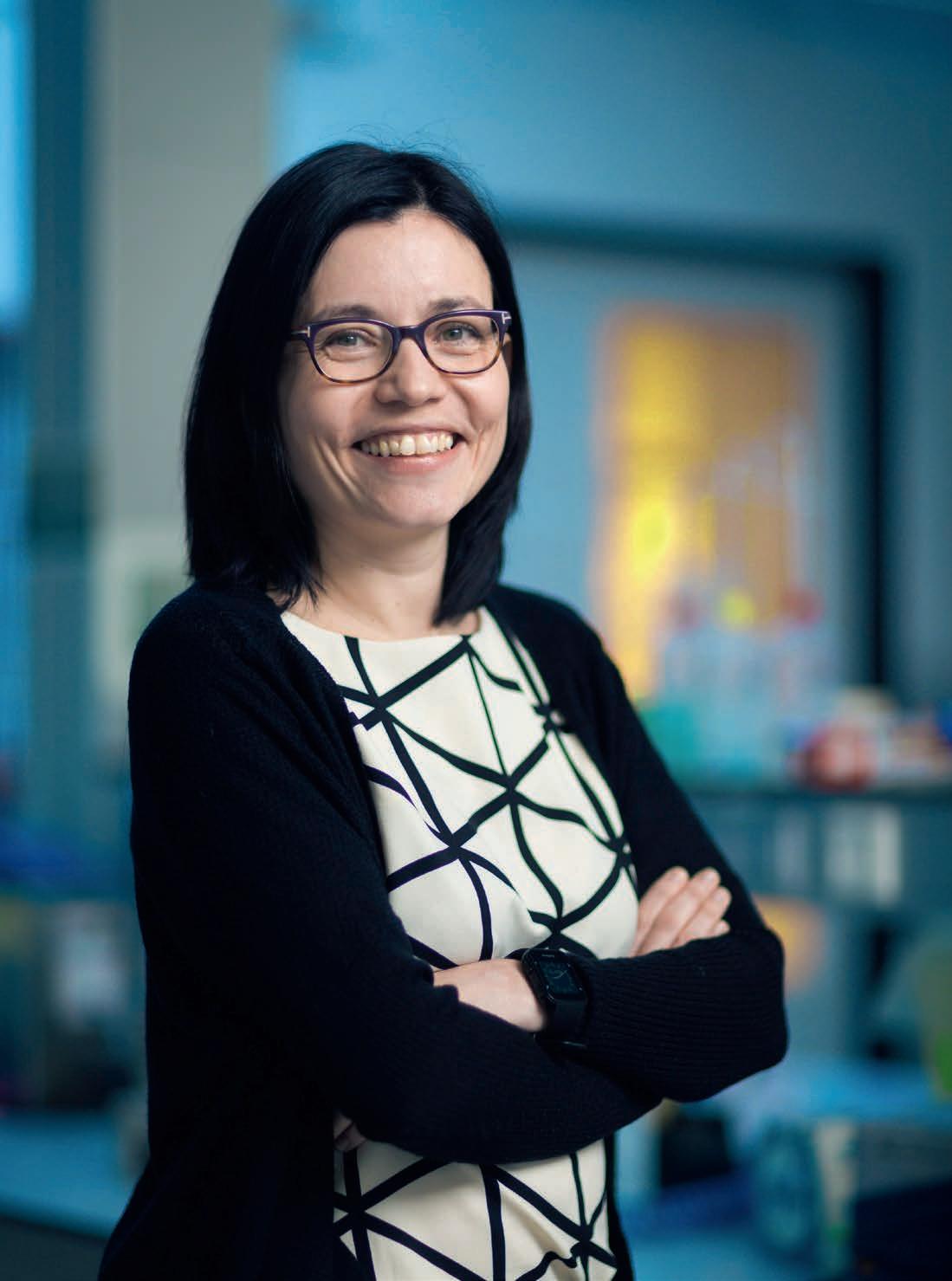
4 minute read
Marc Zinck
FACTS & FIGURES
The Twente University Centre for Cybersecurity Research (TUCCR) is a public-private partnership where experts, professionals, entrepreneurs, researchers and students from industry and knowledge partners collaborate to deliver talent, innovations and know-how in the domain of cybersecurity.
Advertisement
TUCCR’s mission is to strengthen the security and digital sovereignty of our society by performing top-level research on real-world data and network security challenges. To achieve significant societal impact, TUCCR combines technical, socio-economic and ethical know-how and is equipped with state-of-the-art infrastructure ranging from security labs and testbeds to data lakes and dedicated attack-defence environments such as cyber ranges. Key outputs include innovation in the shape of technologies, tools, minimum viable products, startups and top-tier scientific publications, as well as first-class graduates at the Bachelor, Master and PhD level.
TUCCR brings together professionals and researchers from various fields of expertise, including computer science, behavioural and social sciences, quantum physics, electrical engineering and mathematics. It encompasses a total of 250 FTE. And the centre offers cybersecurity education to more than 1,000 students in Computer Science BSc and Computer Science MSc programmes. To date, the UT has fostered more than 1,000 startups. TUCCR wants to do its part to further stimulate the development of new businesses in the region.
SBD strength lies in its ability to design an initiative in a way that ensures it can be embedded easily within the overall structure of the UT itself


‘Together with the TUCCR community, I helped create a business plan, thereby translating and grounding all the good ideas into a solid case. With this case, we were able to lobby and move people in the right direction, both at the UT and with external stakeholders. It was extremely gratifying for me to see that this step was a crucial one to get all stakeholders on board and to be able to create TUCCR and to capitalise on the great potential that we have under this public-private partnership on cybersecurity. In the end, it is about people, but the business case gets them moving.’
SBD | PROGRAMME MANAGEMENT

Connecting and translating needs
Impact Development Manager Rianne Huis in ‘t Veld works as Programme Manager of the Interdisciplinary Consortium for Clinical Movement Sciences & Technology (ICMS). To gain more insight into the work field of this partnership, she developed a “way of working,” also known as the cockpit. ‘I direct the programme from here.’
Text:
Frederike Krommendijk
The strategic programme that forms part of the broader TopFit programme has been ongoing since September. It consists of four domains: branding positioning, financial engineering, sustainable ecosystem and programme management. ‘Branding is, for example, about presenting who the researchers are and what specialities they bring to the table. It’s about bringing researchers and clinicians together in the network so they can find each other. The financial aspect has to do with subsidy and financing applications. How can we connect research to grants? That often requires businesses. Our job is to assess what entrepreneurs form the best match with each application. We must also safeguard the programme’s goals, create synergy between the ICMS roadmap and the themes that are most relevant for the medical technology companies that operate in the field of posture and movement disorders and make sure that we are all taking steps in the same direction.’ According to Huis in ‘t Veld, the work is directed outwards as much as at the ICMS programme itself. ‘I see myself as a connector, as a translator of the industry’s and health care sector’s needs to the world of science and vice versa. You speak different languages and are familiar with how things are done in the different fields. For the UT, we have created a kind of test bed where the practical applicability of an innovation or a design can be tested right away and where the contribution of a new technology to the solution for a medical problem can be assessed. We bring supply and demand together in this programme because all partners are members of the same consortium. We recently had two new doctoral candidates, and they were able to utilise the SBD network straight away, and reached out to the right people very quickly. That is what makes this consortium so valuable for UT.’
About ICMS
ICMS is a partnership between the Sint Maartenskliniek, the Radboud University Medical Centre, Radboud University, University of Twente, Roessingh Research & Development and the Roessingh Rehabilitation Centre. ICMS works together with national and international sciencedriven companies. In total, 180 people are affiliated with the consortium, ranging from medical specialists to paramedics, from engineers to behavioural scientists, which makes it a mission-driven public-private partnership.








